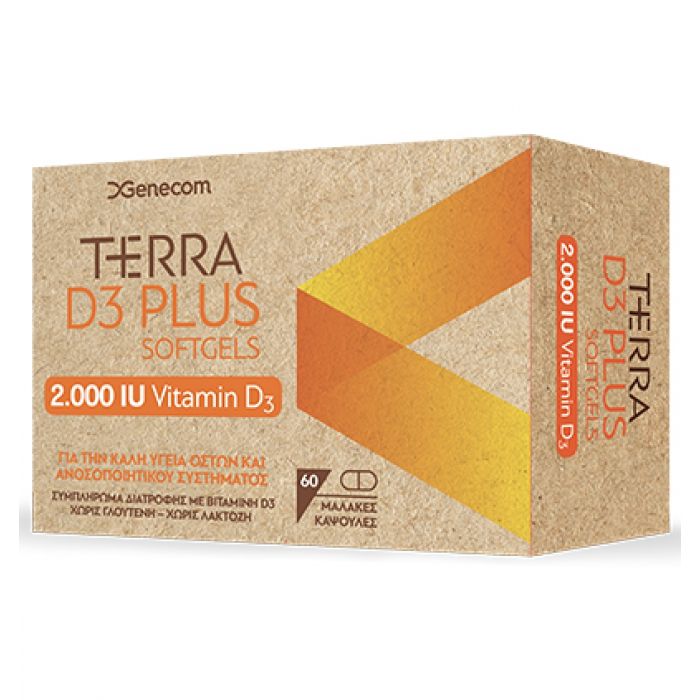Vitamin D3 is produced in the skin by the effect of UV radiation (UVB 290-315nm). Its production in the skin accounts for about 80% of total daily production, with the remaining 20% derived from foods.
Vitamin D production in the skin is influenced by many factors:
• Exposure to sun
• The use of sunscreen (sunscreen with a protection index> 8 reduces vitamin D synthesis by up to 90%)
• Clothing
• The amount of melanin (the black breed has lower levels of vitamin D)
• At the time of year (significant reduction in prices in the winter months)
• Latitude (increasing latitude, ie from equator to poles, limits the ability to synthesize vitamin D)
• Age (the elderly have a reduced production capacity)
• Obesity (vitamin D absorbed by adipose tissue)
Reduced intake of vitamin D results in decreased absorption of calcium and phosphorus from the intestine resulting in their decreased concentration in the body. Still, people with low levels of vitamin D can develop pancreatic, skin, endometrial, breast, prostate, rectal and bowel cancer, or even lymphoma. In addition, low levels of vitamin D have been linked to risk factors for cardiovascular diseases such as hypertension, myocardial infarction, congestion, heart failure, and diabetes mellitus.
Other Vitamin D actions:
• Regulates the normal function of the immune system
• Adjusts blood pressure (renin reduction)
• Helps improve muscle function
• Affects CNS function - positive effect in patients with multiple sclerosis
• Works on intermediate metabolism - increase insulin secretion
Use: 1 tablet daily during lunch or as directed by the doctor.
Vitamin D production in the skin is influenced by many factors:
• Exposure to sun
• The use of sunscreen (sunscreen with a protection index> 8 reduces vitamin D synthesis by up to 90%)
• Clothing
• The amount of melanin (the black breed has lower levels of vitamin D)
• At the time of year (significant reduction in prices in the winter months)
• Latitude (increasing latitude, ie from equator to poles, limits the ability to synthesize vitamin D)
• Age (the elderly have a reduced production capacity)
• Obesity (vitamin D absorbed by adipose tissue)
Reduced intake of vitamin D results in decreased absorption of calcium and phosphorus from the intestine resulting in their decreased concentration in the body. Still, people with low levels of vitamin D can develop pancreatic, skin, endometrial, breast, prostate, rectal and bowel cancer, or even lymphoma. In addition, low levels of vitamin D have been linked to risk factors for cardiovascular diseases such as hypertension, myocardial infarction, congestion, heart failure, and diabetes mellitus.
Other Vitamin D actions:
• Regulates the normal function of the immune system
• Adjusts blood pressure (renin reduction)
• Helps improve muscle function
• Affects CNS function - positive effect in patients with multiple sclerosis
• Works on intermediate metabolism - increase insulin secretion
Use: 1 tablet daily during lunch or as directed by the doctor.
| Brand | Genecom |
|---|---|
| Availability | 1-3 business days |
| Flammable | Νο |
| Vegan | No |
| Off from Original Retail Price | 12 |
| Lowest 30-day Price | 13.18 |
| Audience | Women, Men |
| Content | 60 tablets |
| Ages | All |
| Skin Types | All |
Write Your Own Review






The information below is required for social login
Sign In
Create New Account